双语阅读:孩子如何预防病毒感染?
1. Are children vulnerable to the novel coronavirus?
儿童容易被新型冠状病毒感染吗?
The National Health Commission has identified that children are vulnerable to the novel coronavirus. There have been no severe or fatal cases in children and the symptoms are mild after infection.
国家卫生健康委员会指出,儿童容易被新型冠状病毒感染。目前还未出现儿童危重病例,感染后的症状普遍较轻。
2. What are the possible ways for children to be infected?
儿童可能被感染的渠道有哪些?
The main transmission route is spread by droplet transmission, such as a patient's coughs and sneezing, or by contact transmission, such as contact with the mouth or nose or conjunctiva of the eye through contaminated hands.
新型冠状病毒主要通过飞沫传播,比如患者咳嗽、打喷嚏,或通过接触传播,接触方式可能是口鼻接触,也可能是用带有病菌的手接触眼结膜。
3. Can children still get vaccine in the near future?
孩子在近期还能去打疫苗吗?
Different kinds of vaccines are given during different periods of time and there is no need to be worried if some are given a few weeks late.
不同时间段要打的疫苗不同,部分疫苗推迟几周打是无须担心的。
However, for vaccines with a strict month or age limit, it is recommended to complete the vaccination before the time limit.
但是,如果是严格规定在某个月龄或年龄打的疫苗,建议还是在限制时间内打完。
For those at risk of exposure to rabies or tetanus, it is recommended they complete the vaccination as soon as possible.
对于那些有感染狂犬病或破伤风风险的小孩,建议尽快去接种疫苗。
4. Is breastfeeding still safe?
母乳喂养是否仍然安全?
Mothers should take personal protection -- wear a face mask when breastfeeding, wash hands and keep their nipples clean. If the mother has a confirmed or suspected coronavirus case, breast feeding should be suspended and she should be separated from the baby.
母亲应该采取个人防护措施——在母乳喂养时戴口罩、洗手并保持乳头清洁。如果母亲疑似或被确诊感染新型冠状病毒,则应中止母乳喂养,母亲应与婴儿隔离。
5. Can children still eat chicken, duck and fish meat?
孩子还能吃鸡肉、鸭肉和鱼肉吗?
They can eat chicken, duck and fish meat, but make sure it is cooked. Also, do not chew food with your mouth and then feed your child. Do not blow air through your mouth to cool food.
孩子可以吃鸡肉、鸭肉和鱼肉,但要确保煮熟。另外,不要用嘴把食物嚼烂再喂给孩子。不要用嘴把食物吹凉。
6. Under what kind of situation do children need to go to hospital?
在哪种情况下孩子需要去医院?
If the child has cough, fever and other symptoms, but didn't go outside nor had contact with infected patients, parents can first monitor the child's temperature and provide home treatment.
如果孩子有咳嗽、发烧和其他症状,但没有出门或接触过病毒感染者,父母应该先监测孩子的体温,在家治疗看护。
If the body temperature is not falling and the child appears to have an aggravated cough, breathing difficulties, a poor mental state and other symptoms, it is recommended to take the child to the nearest hospital that provides pediatric outpatient services.
如果孩子的体温没有降下来,咳嗽加重,有呼吸困难、精神状态不佳和其他症状,建议带孩子到最近的提供儿科门诊服务的医院就医。
7. How do children wear face masks?
孩子如何戴口罩?
Generally speaking, little children should not wear masks. The heavy duty N95 mask has the worst air permeability and is not suitable for babies.
一般来讲,婴幼儿不应戴口罩。耐用的N95口罩透气性最差,不适合小宝宝。
When children wear masks, parents should always pay attention to whether the child has breathing difficulties or experiences other discomfort.
当孩子戴口罩时,父母应时刻注意孩子是否呼吸困难或有其他不适。
8. How to wash children's hands properly?
如何正确地给孩子洗手?
At all times, apply soap and rinse with running water. If they are going out and can't readily wash their hands with running water, always carry paper towels and an alcohol-based hand sanitizer.
无论何时都要用肥皂和流水洗手。如果孩子外出,不能马上用流水洗手,就要随身携带湿巾和含有酒精的免洗洗手液。
9. How to protect children from the virus when going out?
外出时如何保护孩子不被病毒感染?
Stay at home is the best protection. If you must go out, wear a face mask, drive yourself and try not to use public transportation. If it's a short distance, walking is the best option.
待在家里就是最好的防护。如果必须要外出,戴上口罩自驾出行,尽量不要乘坐交通工具。如果是短途出行,走路是最好的选择。
